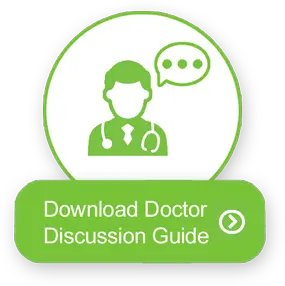
Madeleine Castellanos, a sex therapist and functional medicine psychiatrist based in New York City, and author of Wanting to Want: What Kills Your Sex Life and How to Keep it Alive, says patients like Rachel shouldn’t be embarrassed to ask questions regarding sexual side effects when being prescribed a new antidepressant medication, because antidepressants’ libido-killing reputation is no rumor—in fact, sexual side effects are the most common side effects that patients experience when taking these medications.
“This is very common, particularly with selective serotonin reuptake inhibitors (SSRIs),” she says. “Antidepressant medication can interfere with libido, so that a patient has no or very little interest in sex. It can also make arousal slow and sluggish so people have trouble getting excited about sex. And there are also well-documented effects on delayed orgasm, for both men and women. Some people are anorgasmic, or unable to reach orgasm, while on these medications. But there is a lot of a variation. Different medications have different effects in different people. It’s hard to know if one patient or another will experience these kinds of side effects.”

So what can be done? Castellanos recommends talking openly and honestly with your healthcare provider—and being upfront about any sexual side effects you may be experiencing. Depending on the circumstances, your doctor may be able to change up your medication regimen to help with sexual issues.
“We know that the reason why SSRIs interfere with arousal and orgasm is because they dampen dopamine, a neurotransmitter in the brain. There are other medications, like Wellbutrin, that boost dopamine and seem to have less sexual side effects,” she says. “So some doctors will try it as an adjunct medication to see if it helps with arousal side effects. Or some might just try Wellbutrin on its own instead.”
But Castellanos says there is also a host of lifestyle changes you can make to help manage sexual side effects. “Physical contact helps. A good diet and the right micronutrients to help balance hormones and energy production can help. Getting enough sleep is important,” she says. “There are so many things that you can do to help increase your energy and mood—and, with that, your libido. So work with an enlightened doctor who understands there are connections between a variety of factors, and is willing to explore them with you and work with you to get a good response, so you can get back to enjoying life in all the ways you want to.”
Our articles are for informational purposes only and are reviewed by our Medical Information team, which includes PharmDs, MDs, and PhDs. Do not make any changes to your current medications or dosing without consulting your healthcare provider.
The GeneSight test must be ordered by and used only in consultation with a healthcare provider who can prescribe medications. As with all genetic tests, the GeneSight test results have limitations and do not constitute medical advice. The test results are designed to be just one part of a larger, complete patient assessment, which would include proper diagnosis and consideration of your medical history, other medications you may be taking, your family history, and other factors.
If you are a healthcare provider and interested in learning more about the GeneSight test, please contact us at 855.891.9415. If you are a patient, please talk with your doctor to see if the GeneSight test may be helpful.





